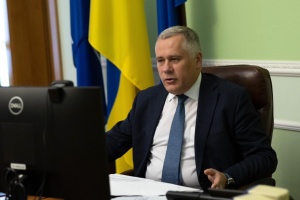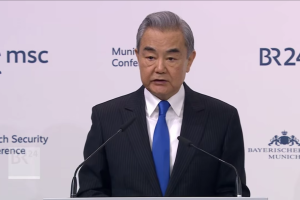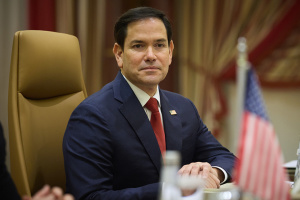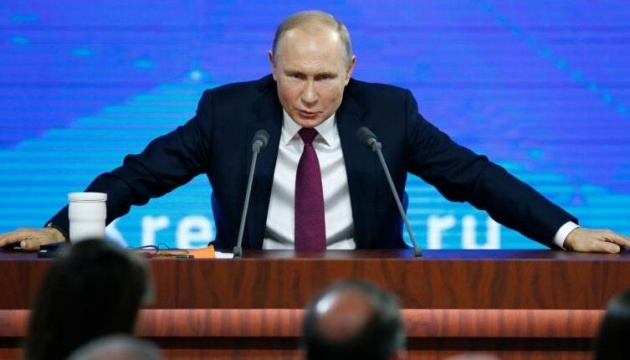
Putin walking back on own ultimatum snubbed in the West
The statement by the five nuclear powers, permanent members of the UN Security Council, to prevent a war between such powers and reduce strategic risks has not aroused much interest among the press and political experts, with the exception of Russia. So the question arises, what exactly caused the powers to sign the statement right now? What has united fierce rivals – the United States, China, France, Britain, and Russia – so quickly, practically without prior negotiations, in these more than tense days?
The statement of the Five was preceded by an ultimatum put forward by one
Since there is nothing new in the statement’s text, which only reaffirms a number of previously concluded treaties and agreements of nuclear powers, a natural question arises – what’s happened recently that has forced the nations with the strongest military potential to reaffirm their commitment to peace?
The answer becomes clear if we read the reports coming from the Russian media, which strongly emphasize that it’s Russia who initiated the statement.
Russia, which has long come under economic sanctions for its aggressive policies toward its neighbors, this year sharply raised tensions with the West and recently put forward a number of unprecedented demands to the United States and NATO. Russia's leadership, which has violated multiple international laws and moral norms, demands "security guarantees" that, if provided, would mean the de-facto dissolution of NATO and the limitation of the allies’ sovereignty.
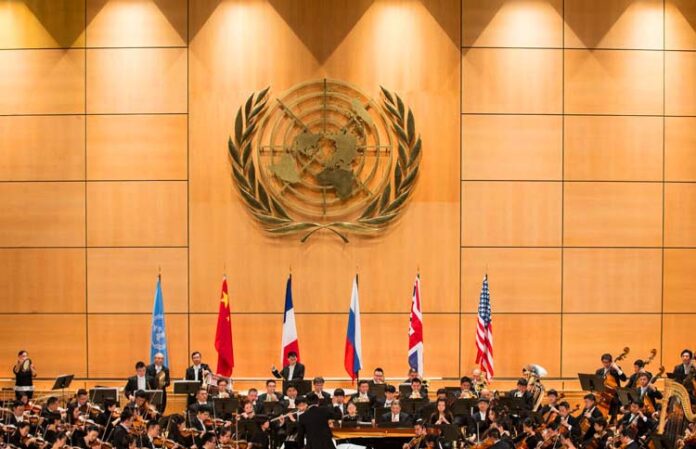
Flags of UN's nuclear powers
Not to engage in conspiracy theories, let's turn to facts – which is the most reliable option in such conditions. During a phone call between the U.S. and Russian leaders, whose details haven’t been made public, the American president, as per the White House spokesmen, rejected the Russian ultimatum. At the same time, the two agreed to continue negotiations as the situation must somehow be normalized. Earlier, Joe Biden suggested this must be done within three to four weeks – the term that expires late January.
Russia's initiative on a joint statement as an attempt to "save their face"
Talking and negotiating is always better than arguing and fighting because this would be a possible conflict involving the world's largest nuclear arsenals. The problem is that after announcing their ultimatum tothe West and the United States as the undisputed leader of the democratic world, it is now very difficult for Russia to back down from these demands, as this would mean losing face in a show of own helplessness. A peculiar detail: when threatening the West, Russia isn’t talking about an armed conflict with western powers, while rattling sabers and threatening the invasion of Ukraine, which is not a NATO ally or a member of any other defense alliances.
For an outside observer, this looks pathetic and ridiculous, but, unfortunately, it’s Ukraine where Russia is threatening to test its military might in a major confrontation with NATO. Therefore, prompt support for the statement on the prevention of nuclear war may well be a diplomatic move by the West to allow Russia to retreat while "saving face." On the other hand, why wouldn't nuclear powers reassure each other with guarantees of non-use of nuclear arms? After all, this is better than not doing so, especially in the current global situation.
An important nuance that political experts pointed out was that the statement was not joined by other powers also holding nuclear weapons – India, Pakistan, and the DPRK, as well as Israel, which is also considered a member of the "nuclear club", but has never officially confirmed it possesses the “bomb.” The statement with such a set of signatories may mean that the world's most powerful states (the United States and Russia together own 90% of the world's nuclear arsenal) are ready to agree on security guarantees for each other, although not in the format of dividing the spheres of influence and a “new Yalta,” but only reaffirming the existing world order.
In some ways, this is confirmed by the information policy of the four signatories. The document and initiative are mostly discussed in Russia, which proves its importance for domestic audiences. Everyone else almost ignored him. For example, the Chinese media simply stated that such a statement was signed, paying much more attention to the preparations for the Olympics and mutual congratulations with a number of governments (including Ukraine) on the anniversary of the establishment of diplomatic relations.
Ukrainian interest, risks, and prospects
How can this relate to the key Ukrainian interest of today, which is “will the West make concessions to Russia at the expense of Ukraine’s interests? It seems that it can’t. An extraordinary meeting of NATO foreign ministers is scheduled for January 7 to discuss Russia's threat to Ukraine and efforts to counter it; talks between American and Russian diplomats in Geneva are scheduled for January 9-10; a meeting of the Russia-NATO Commission will be held in Brussels on January 12; and OSCE consultations on the Ukraine issue will be held in Vienna on January 13. By all indications, the Kremlin should expect no profit off these contacts as its ultimatum will be rejected, albeit in a very rounded diplomatic wording. So the statement of the five can be used by Putin and his team for an elegant (as they believe) walk-back.
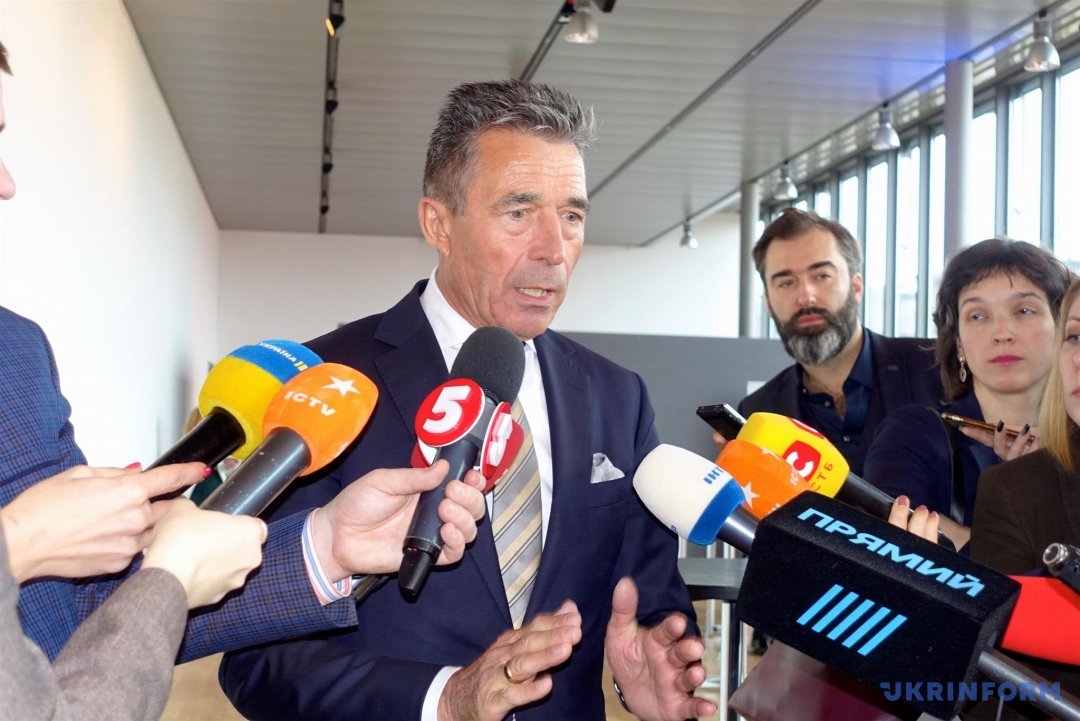
Anders Fogh Rasmussen
In an interview with Politico on January 4, Anders Fogh Rasmussen, Jens Stoltenberg's predecessor as NATO Secretary General, said: “[W]e should end Putin’s de facto veto on Ukraine and Georgia’s Euro-Atlantic aspirations, achieved by fomenting low-level conflicts in these countries, the intensity of which he turns up and down to suit his agenda."
Rasmussen emphasized: "We promised both Georgia and Ukraine seats at the NATO table in 2008, and it’s time we set out an action plan to realize our promise. If necessary, we can do this with a proviso stating that NATO’s Article 5 only covers the territory under the control of Kyiv and Tbilisi, but NATO cannot have an open-door policy on enlargement in which it continues to allow Putin to act as the doorman."
Through the former NATO chief, former Danish prime minister and ex-aide to the Ukrainian president, the West is sending a clear signal to Russia that blackmail will not pass, NATO will do as it sees fit and ignore Russian threats. As for the restriction on Article 5, let the Kremlin see it as a temporary concession.
Former Russian Deputy Foreign Minister Georgy Kunadze believes that "in general, the current Russian endeavor has very little chance of success, while the likelihood of its complete failure is very high... In short, we need an elegant way out of the situation to talk about how the Russian president, who is never wrong, has defeated everyone, again. The first step towards a new victory is the statement of the leaders of the five permanent members of the UN Security Council, adopted on Russia’s initiative, about the need to prevent nuclear war and the inadmissibility of an arms race."
The reaction of Belarus to the "statement of the five" is another indirect evidence of this. Belarusian Foreign Ministry spokesman Anatoly Glaz said the "Nuclear Five" had, in fact, reached a consensus that there could be no winners in a nuclear war and that it must never be unleashed. (…) And here we can’t but appreciate the large-scale work carried out by our Russian colleagues as the initiators of this document. "
Against the background of previous statements by Belarus on its readiness to allow Russia's nuclear weapons on its territory, such support for the terms of the Treaty on the Non-Proliferation of Nuclear Weapons looks very eloquent, especially given that Belarus and Russia formally constitute a virtual Union State.
The situation remains tense, and the recent withdrawal of 10,000 Russian troops from the Ukrainian border doesn’t mean de-escalation. Perhaps this could be done only to create an appearance that the U.S. President's demand for de-escalation is being met BEFORE de-escalation talks begin. But more than 100,000 Russian forces remain in close proximity Ukraine’s borders. Let’s hope that this time, too, the strength and motivation of Ukraine’s Army and the western powers’ commitment to the agreements reached will turn Russia away from trying to deal with the "Ukraine issue" militarily.
Dmytro Redko, Kyiv

